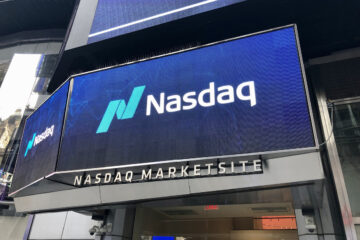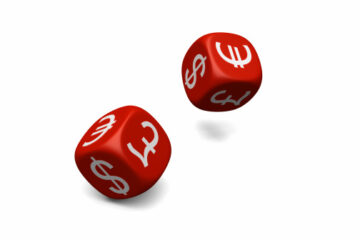McDonald’s (MCD) has recently been embroiled in a beefy situation that has significantly dented its sales, adding more strain to its struggling business.
Last month, the fast-food chain faced a nasty E. coli outbreak at multiple restaurant locations nationwide. The outbreak sickened more than 100 people, hospitalized 34, and even killed one person. It is the first serious public health issue McDonald’s has faced at its U.S. restaurants in more than 40 years.
💰💸 Don’t miss the move: SIGN UP for TheStreet’s FREE Daily newsletter 💰💸
Federal officials found that the deadly bacteria was linked to McDonald’s Quarter Pounder hamburger, prompting the fast-food chain to remove the item from menus across the country temporarily.
Related: McDonald’s new $5 Meal Deal isn’t going as planned (so far …)
During an earnings call on Oct. 29, McDonald’s Chief Financial Officer Ian Borden confirmed that the outbreak caused “daily negative sales and guest count” at the company’s U.S. restaurants.
According to recent data from Placer.ai, McDonald’s restaurant visits declined by 6.4% year-over-year on Oct. 23, the day the E. coli outbreak was announced. By Oct. 24, visits shrunk by 9.1%, and on Oct. 25, they decreased by 9.4%.
McDonald’s plans to spend millions to lure back customers
Following the E. coli outbreak that scared away customers, McDonald’s is now doing major damage control. The company is reportedly spending $100 million to help attract customers back into its restaurants, according to a new report from CNN.
The company allegedly sent a memo to employees last week stating it will be spending $35 million on marketing and $65 million directed toward franchisees negatively impacted by the outbreak.
Close-up of McDonald’s Double Quarter Pounder with Cheese burger, San Ramon, California, August 3, 2024.
Smith Collection/Gado/Getty Images
McDonald’s new marketing plan involves boosting television advertisements that promote the restaurant’s new value deal: customers can purchase 10-piece Chicken McNuggets for $1, a deal that will last until Dec. 2.
It will also be promoting its recently extended $5 Meal Deal, which offers customers a meal that consists of a McChicken, four-piece chicken nuggets or a McDouble, along with fries and a drink for $5.
The memo to McDonald’s employees claimed that recent testing has concluded that E. coli is not currently present in the company’s food and that the Quarter Pounder is back on menus across the country.
McDonald’s was struggling with low sales before the outbreak
The E. coli outbreak, which has sparked several lawsuits, is the last thing McDonald’s needs as the company was already struggling with declining sales before the outbreak.
In its second-quarter earnings report, released on July 29, McDonald’s revealed that comparable sales tumbled by almost 1% year-over-year in the U.S. due to low guest counts at its restaurants. This contributed to its net income shrinking by 12% compared to the same quarter last year.
Related: McDonald’s US sales face major threat despite small progress
McDonald’s poor second-quarter performance came after customers took to social media to complain about the fast-food chain’s high menu prices, which have increased multiple times since the Covid pandemic.
View the original article to see embedded media.
Amid the recent criticism, McDonald’s introduced its $5 Meal Deal in June to help attract frugal customers back into its restaurants.
More Food + Dining:
Chipotle faces lawsuit for serving ‘inconsistent’ portion sizesEven deals can’t reverse startling trend in the fast-food industryMcDonald’s is facing the brutal aftermath of price increases
The deal was set to last only a limited time, but it was later extended into December after it reportedly failed to significantly boost profitable foot traffic at restaurants.
McDonald’s was on its way to recovery. In its third-quarter earnings report, released on October 29, it reported that its U.S. comparable sales increased 0.3% year-over-year, while its net income only shrunk by 3%. McDonald’s claimed that the E. coli outbreak partially offset its recent increased sales.
Related: Veteran fund manager sees world of pain coming for stocks


